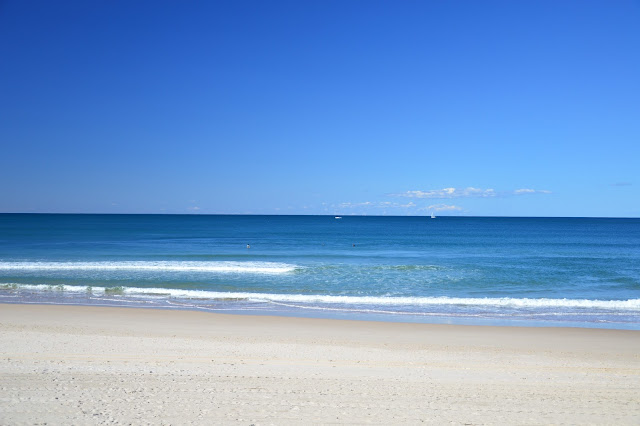Going
for a walk along the beach is something everyone loves to do. I like to go for
a swim, do some fishing or just take photos.
Unfortunately,
some beaches are littered with rubbish washed in with the tide or from illegal
dumping. Research by the CSIRO has found three quarters of the rubbish floating
in waters off the Australian coast is plastic and its density ranges from a few
thousand pieces to more than 40, 000 pieces of plastic per square kilometre.
This
is an incredible amount of plastic but high demand for plastic goods has
increased the occurrence of this kind of debris in our oceans and the resulting
negative impacts to marine life and their habitat. Leather back and green
sea turtles often mistake floating plastic bags for a jellyfish. Due to the
animal’s unique anatomy, the bags lodge in their throat or stomache, with the
animal eventually dying from starvation.
Sadly,
this is also the case for other marine wildlife like sharks and birds. CSIRO
have reported 67% of short-tailed shearwaters inhabiting waters along
Australia, New Zealand and the Southern Ocean consume plastic items, such as,
rubber, foam, string and glow sticks, as the birds mistake it for their natural
prey, while foraging out at sea. Negative effects on marine animals are not just
isolated to stress from swallowing plastic and starvation; they include the
chemicals the animals can absorb into their bodies.
The
Australian government and local councils provide opportunities for recycling.
For instance, at refuse stations, apart from your rubbish, you can
drop off metal, plastic, electrical goods or green waste. Shops in some states
in Australia have stopped providing plastic bags as an incentive for
consumers to bring their own. This is working but people still rely on
plastic bags because they are a fast and easy solution.
 |
Footprints along a beach. Photo © Stefan Villiger |
 |
The type of plastic items people find on beaches. Photo © Chris Richardson |
 |
Image of a plastic bag. Photo © Auke Jongbloed |
 |
Beautiful Australian beach. Photo © Gabrielle Ahern |
The
fantastic plastic mix over land and sea can make way for its more natural
counterpart if:
•
community awareness programs increased,
•
new environmental and maritime laws were introduced, and
•
alternative products to plastic were made more
accessible and affordable.
 |
Marine debris. Photo © Elvis Santana |
•
Use an alternative to plastic bags, cups, straws, etc. Lots
of people do this already, which is great.
•
Take part in a conservation project during a holiday, gap
year or any time you want to, locally or overseas. For example, look after
animals in Africa; survey turtles at Mon Repos in Queensland; assist research
about Ningaloo Reef in West Australia; or contribute to
studies about the Amazon rainforest, just as a suggestion.
•
Throw discarded nets or fishing lines into the rubbish.
•
Change the way you do things at home, at work or in general.
 |
Australian beach. Photo © Gabrielle Ahern |
Written by Gabrielle Ahern
Salty
Wave Blue – Into all things ecology.
If
you would like to see images of marine reptiles like turtles in their
marine environment, please take a look at my Pinterest site: https://www.pinterest.com/saltywave
Links
to some great community based organisations involved with marine conservation
& clearing the oceans of plastic debris.
Take
3 is a not-for-profit organisation formed in Australia in 2009 that aims to
raise awareness of plastic pollution (marine debris) by encouraging each
visitor to the beach, waterway or…anywhere to simply take 3 pieces of rubbish
with them when they leave and dispose of it thoughtfully. We also
encourage everyone to reduce unnecessary plastic consumption – and make our
lives a little less plastic!”
Project
AWARE Foundation is a growing movement of scuba divers protecting the ocean
planet – one dive at a time. We’re focusing in on two major ocean issues
–Sharks in Peril and Marine Debris, or trash in our ocean.”
Surf
Rider Foundation: http://www.surfrider.org.au
Surfrider Foundation Australia is a registered not for profit sea-roots organisation dedicated to the protection of Australia’s waves and beaches through Conservation, Activism, Research and Education C.A.R.E.”
Surfrider Foundation Australia is a registered not for profit sea-roots organisation dedicated to the protection of Australia’s waves and beaches through Conservation, Activism, Research and Education C.A.R.E.”
No comments:
Post a Comment